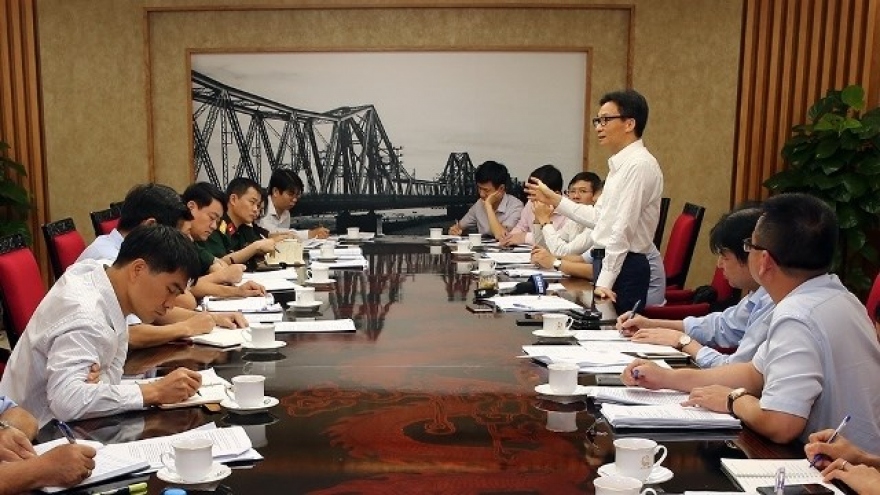Vietnam wants to be in top 50 nations in IT, telecom
Vietnam, which is in a lowly 108th place in the International Telecommunication Union's ICT Development Index, wants to improve its status.
 |
| Vietnam needs to popularize smartphones by licensing 4G and testing 5G technologies, says Minister of Information and Communications Nguyen Manh Hung. (Photo: Reuters) |
Speaking at a Ministry of Information and Communications (MoIC) conference held this week, Prime Minister Nguyen Xuan Phuc emphasized the need for the country to improve its ranking in ICT, one of country’s strengths alongside agriculture and service.
MoIC Minister Nguyen Manh Hung said the country must use the International Telecommunication Union's rankings as a guideline and strive to improve to no lower than 50th latest by 2022.
He stressed that to take the lead in the digital revolution, the country needs to popularize smartphones by licensing 4G and testing 5G technologies to increase capacity, data usage per user and the quality of the mobile network.
"Vietnam must be on the same line with the world in new technologies. We will not be eight and 10 years behind like we were with 3G and 4G."
According to the minister, Vietnam's development in telecommunications must remain sustainable by shifting resources to explore new markets once the phone market saturates instead of continuing to compete unhealthily on old markets.
"Mobile money," which the ministry is trialing now, allows users to transfer money and make purchases through their telecom accounts, and would help bring e-payment to everyone in the country and stimulate economic growth, he said.
Digital transformation, e-governance and smart cities would be the big stories of 2019, he said.
"National digital transformation, digital economy and digital society would be the overarching story for decades to come. We need to develop strategies and projects in 2019 to clarify what must be done for each field in the digital economy and the Fourth Industrial Revolution."
Speaking about cyber security and safety, he said the Internet, on which the country's prosperity depends, is itself an unsafe environment.
"In 2019 there will be no incidents of government agencies' websites being hacked and having information stolen. Vietnam must become ASEAN's center for cybersecurity."
Vietnam has an opportunity to become one of the world's major manufacturers of electronic and telecom equipment, he said.
Globally there are only four major telecom infrastructure and equipment manufacturers -- Ericsson, Nokia, Huawei and ZTE – and while China’s Huawei and ZTE enjoy a market share of 60 percent, they are encountering difficulties with the U.S., he pointed out.
"Vietnam is currently capable of manufacturing 70 percent of telecom equipment [used globally]. With effort, we could become the fourth nation in the world capable of manufacturing and exporting all types of telecom equipment. This must be achieved by 2019-2020."
"Vietnamese network operators must use Vietnamese-made equipment if the price and quality are similar."
The ministry has set a target of 20-30 percent of operators' revenues coming from digital content this year instead of the current 6-8 percent, saying the digital content industry is capable of expanding by three or four times to achieve revenues of $3-4 billion.
"The key to the digital content industry’s growth is that policies must promote it," said the minister.



